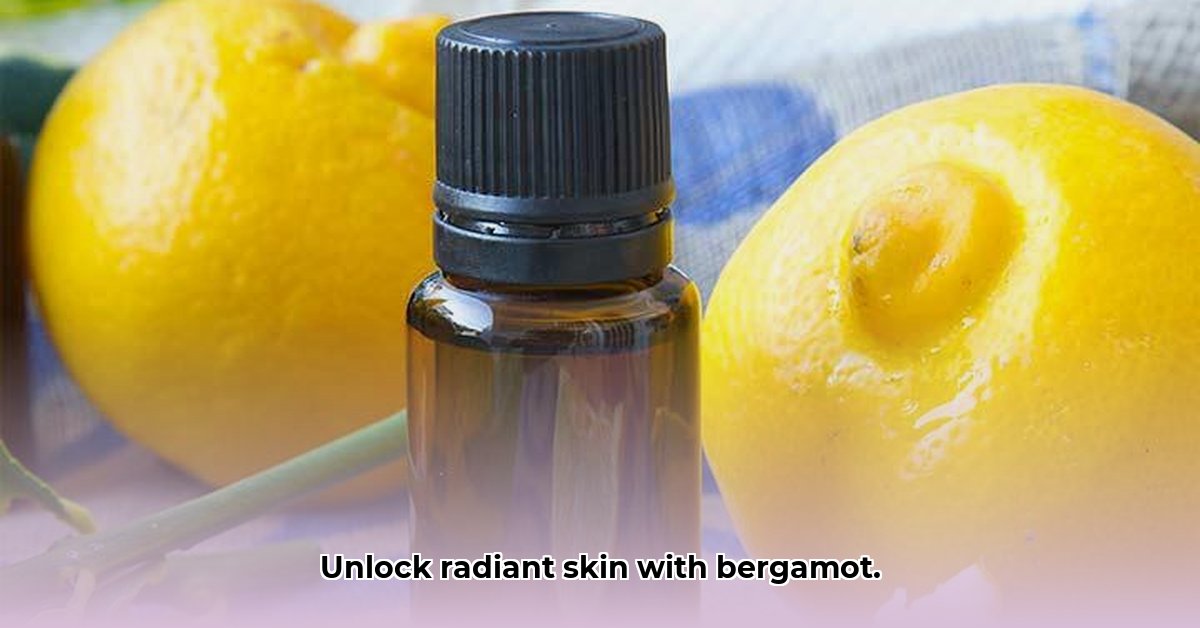
Bergamot essential oil, extracted from the fragrant rind of the bergamot orange, offers a natural approach to skincare. This guide explores its potential benefits and provides a step-by-step approach to incorporating it safely and effectively into your routine. Let's uncover how this versatile oil can help you achieve radiant, healthy-looking skin.
Understanding Bergamot Oil's Skin Benefits
Bergamot oil's effectiveness stems from its unique chemical composition, rich in compounds with noteworthy antibacterial and anti-inflammatory properties. These properties target blemish-causing bacteria while soothing irritated skin. Many users also report improvements in skin tone and texture, resulting in a more even and luminous complexion. However, individual results may vary. Does the prospect of clearer, brighter skin sound appealing?
Key Benefits: A Closer Look
- Antibacterial Action: Bergamot oil's antibacterial properties help combat Cutibacterium acnes, a bacteria often implicated in acne breakouts. This makes it a potential ally in fighting blemishes.
- Anti-inflammatory Effects: Its anti-inflammatory nature helps to calm irritated and inflamed skin, reducing redness and promoting healing.
- Brightening Properties: Many users report an improvement in skin tone and texture, leading to a more even and radiant appearance.
A Step-by-Step Guide to Safe and Effective Use
Before applying bergamot essential oil, remember the cardinal rule: always dilute it with a carrier oil. This crucial step minimizes the risk of irritation. Suitable carrier oils include jojoba oil, sweet almond oil, and fractionated coconut oil.
Here's a practical approach:
Patch Test: Begin with a patch test. Apply a tiny amount of diluted oil (1-3% dilution – for example, 3 drops of bergamot oil to 1 teaspoon of carrier oil) to a small area of skin (like the inside of your elbow). Wait 24 hours; if no irritation appears, proceed.
Proper Dilution: Maintain a 1-3% dilution ratio. For sensitive skin, start with a lower concentration (1%).
Gentle Application: Gently apply the diluted oil to your face using clean fingertips. Avoid contact with eyes.
Nighttime Use: Bergamot oil can increase your skin's sensitivity to sunlight (photosensitivity). Use it as part of your nighttime skincare routine.
Consistent Application: For optimal results, use the diluted oil consistently for several weeks. Don't expect immediate transformation, but rather gradual improvement.
Sunscreen Protection: Even with nighttime use, always apply a broad-spectrum sunscreen with SPF 30 or higher during the day to guard against sun damage.
DIY Recipes: Unleash Your Inner Skincare Alchemist
Ready to personalize your routine? Try these easy DIY recipes:
A. Simple Soothing Toner:
- 2 tablespoons witch hazel
- 1 teaspoon aloe vera gel
- 2 drops diluted bergamot oil
Combine and apply morning and night with a cotton ball.
B. Calming Face Mask (occasional use):
- 1 tablespoon plain yogurt
- ½ teaspoon honey
- 1 drop diluted bergamot oil
Mix, apply for 15 minutes, and rinse thoroughly.
Weighing the Pros and Cons: A Balanced Perspective
While bergamot oil offers potential benefits, it’s essential to be aware of potential drawbacks:
Pros:
- May reduce acne and blemishes.
- Soothes inflamed skin and reduces redness.
- Potentially improves skin tone and texture.
- Easy to integrate into your skincare routine.
Cons:
- Photosensitivity: Increases sun sensitivity; use at night and protect your skin during the day.
- Potential for irritation and allergic reactions: Always conduct a patch test.
- Variable effectiveness: Results may differ from person to person.
Ongoing Research and Disclaimer
While anecdotal evidence and some studies suggest beneficial effects, further research is needed to fully understand bergamot oil's long-term effects. This information is for general knowledge and doesn't constitute medical advice. Consult a dermatologist for personalized skincare recommendations.